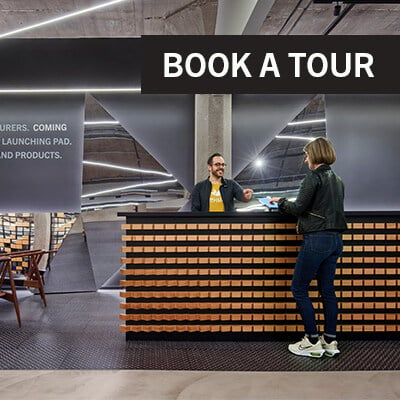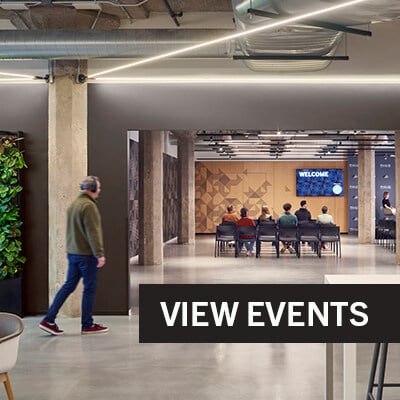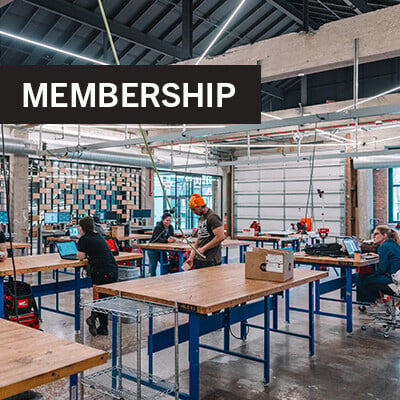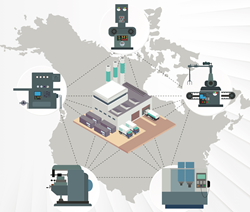As part of the mHUB series "Five Questions with," Steve Kase, CEO of ASK Power, mHUB board member, and moderator of the FIRE panel on April 25, discussed his journey to becoming a major player in the Chicago manufacturing community and the importance of partnerships between traditional manufacturing and startups.
1. You've been a major player in the Chicago manufacturing community, especially in job creation initiatives, from your roles with IMA and TMA to 1,000 jobs to mHUB. What motivated you to get involved and what keeps you involved?
I have always felt that manufacturing jobs were noble, that they created a unique sense of daily satisfaction. "Making something" is in our DNA.
During the Great Recession in the late 2000's, we had the vexingly unique situation of millions unemployed along with a skills gap leading to hundreds of thousands of unfilled manufacturing jobs. At the time I was serving as chair of TMA, and we recognized that while our training had been historically very successful, potential employees needed, and still need, rapid, hands-on skill development. When 1000 Jobs was conceived by World Business Chicago to connect job seekers with training so that they could be placed with employers, I felt a real "mission call."
At the same time, my company, ASK, set out on its own training mission called "Knowledge Workers." We developed an internal automation training program that enriched our employees' jobs significantly by teaching them how to be responsible for output, quality, tool setup, and automation systems. Our output quadrupled, and it had a very favorable effect on our ability to invest in our own processes. We were also able to raise wages some 30%.
From job creation to job enhancement, all the way to continuous process (and profit) improvement, this mission work has been exciting for me.
2. ASK Power prides itself on staying commited to customers, using the most mordern systems and design, and having the most rigorous product standards. How have these values shaped your views and actions when it comes to Chicago manufacturing?
We have always been the little guy who "ASKs" how we can serve our customers their way. Our customers appreciate how we make it easy to do business with us. We automated our processes and our product development, so it became much more enjoyable for our staff. Automation enriched the work lives of our employees so that truly inspirational performance followed. We've created a virtuous cycle here where serving our employees generates growth, and reinvesting in automated processes makes service more enjoyable and profitable.
3. How can mHUB best support manufacturing growth in the Chicago community?
The traditional manufacturer innovates every day. Literally, whether it is product or process-related, someone in production, or sales, or engineering, is converting customers' changing demands into product solutions. Similarly, startups have product and process innovation as goals, but also concentrated on rapid growth with a narrower product focus.
When entrepreneurs are ready to scale production, traditional manufacturers are instrumental in the process. Likewise, when traditional manufacturers want to scope a potential innovation, mHUB's engineering and product development expertise are providing that support.
mHUB has the attention of the startup generation and helps traditional manufacturers understand that successful innovation is the future. Keeping the communication going until it becomes a natural process is what I believe mHUB can do to benefit manufacturers the most.
4. What do you envision for the future of the manufacturing community in Chicago?
I am hoping that a happy marriage between startup innovation and rapid growth with the strength and experience of traditional manufacturers becomes a unique resource it itself. Chicago is certainly an industrial center. Imagine if we lead the way in this potentially powerful form of collaboration.
5. What advice do you have for mHUB members as they continue to grow their manufacturing businesses?
If you want to build your prototype dream, get advice from your peers, but be willing to consult someone from "old line manufacturing." When you need to ramp up volumes, improve quality, and grow profitability, those same manufacturers who do it every day want to do it for you too!





